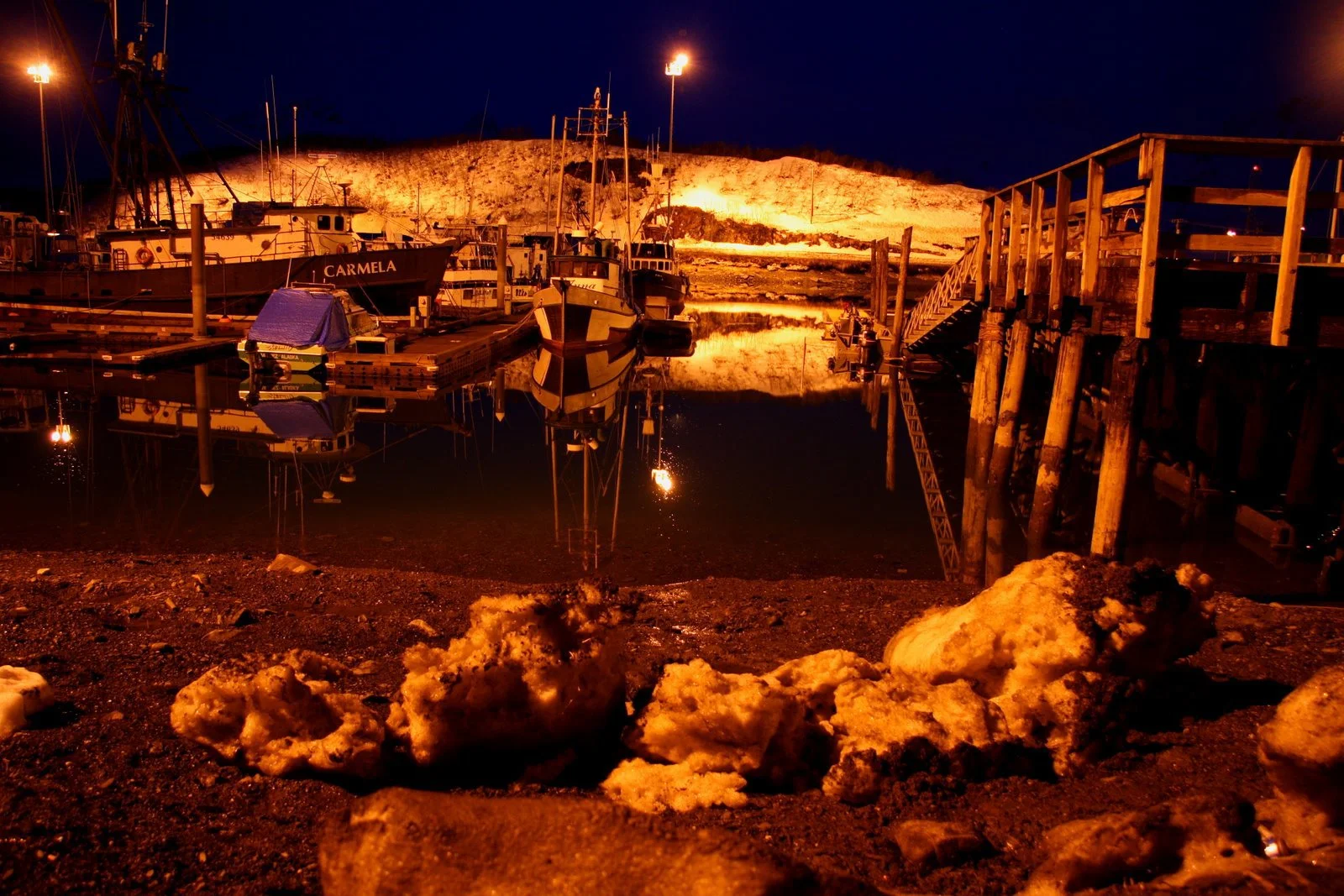The ice-ocean boundary is a critical piece of the puzzle of future glacier change - yet it is challenging to study due to the dangers involved. Calving, ice-shelf disintegration, fjord and sub-ice shelf circulation, and upstream ice dynamics are all linked to ocean and atmospheric processes. These projects are by necessity interdisciplinary, we work with oceanographers, marine geologists, marine biologists, and atmospheric scientists. Our favorite tools of the moment include "listening" to the ice using seismics and underwater acoustics. Observing motion using GPS and time-lapse photography. Imaging the interior of ice shelves using ground-penetrating radar. And others.
Alaskan Tidewater Glaciers
Antarctic Ice Shelves
What is the variability in subglacial discharge?
How does subglacial discharge and terminus ice melt affect ice dynamics?
Does glacier sliding make sound we can hear in the water?
What is the link between warm ocean currents and ice shelf disintegration?
Under what conditions can surface melt from warm winds cause ice shelf instability?
Larsen B Embayment: Scar Inlet Ice Shelf
International Thwaites Glacier Collaboration (ITGC)
TARSAN Project (Pettit and Heywood Lead)
Funded by the U.S. National Science Foundation and U.K. National Environmental Research Council, ITGC is a super exciting international collaborative program to better determine the mass loss and potential sea level rise from Thwaites Glacier, Antarctica. Within this collaboration, I am leading the TARSAN project with oceanographer Karen Heywood.
Visit ThwaitesGlacier.org for more project details
and explore the area here: Thwaites-Explorer.org
Exploring with National Geographic Expeditions
LeConte Glacier Project has been funded by the National Science Foundation for several years in collaboration with Jason Amundson, Jonathan Nash, David Sutherland, and many others.
This year National Geographic is supporting an exciting new component - remote mooring deployments to listen and measure ice melting and water movement right at the terminus. In that "danger zone" where only unmanned vehicles can go. We will be deploying moorings in September 2018 and then diving in to the data this fall and winter. Follow our work here!
Northwestern Fjord with Girls in Icy Fjords 2019
Bear Glacier with Girls in Icy Fjords 2017
The Sound of Ice Melting
Our 2015 paper on ice melting is "Unusually Loud Ambient Noise in Tidewater Glacier Fjords: A Signal of Ice Melt"
Click at right to watch the movies of bubbles escaping the ice!
Sample Recordings of ice melt and calving.
Collaborators Larissa Project
Dr. Ted Scambos, NSIDC, Univ. of Colorado
Dr. Eugene Domack, Florida State University
and many others, please visit the
Collaborators on various Underwater Acoustics Projects
Dr. Jeff Nystuen, University of Washington
Dr. Shad O'Neel, U.S. Geological Survey
Dr. Preston Wilson, University of Texas
Dr. Dave Sutherland, University of Oregon
Dr. Emily Shroyer and Dr. Jonathan Nash, Oregon State University
Funding Sources
National Science Foundation
National Geographic
The full version of this film (private)




